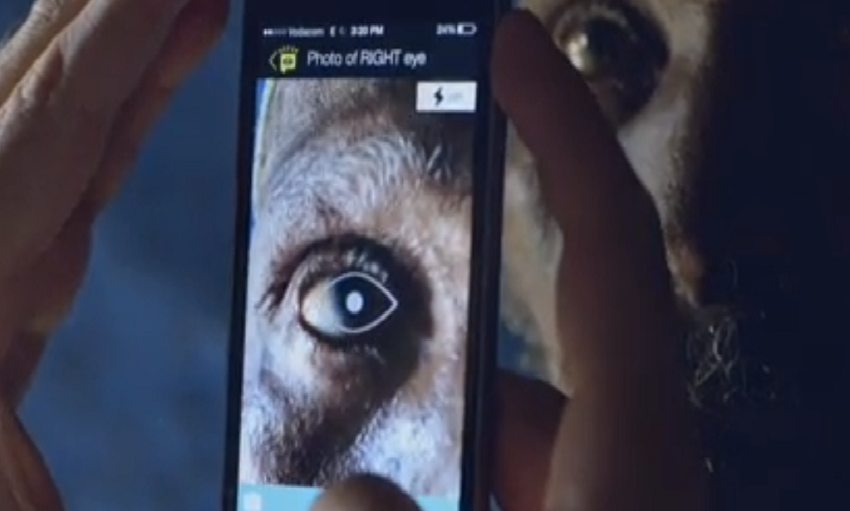South African startup Vula Mobile, which connects general health workers in remote areas with specialists in hospitals and has an initial focus on eye health, is eyeing what it describes as the “huge potential” of the global m-health market after securing its first commercial contract.
Vula Mobile allows health workers to capture basic patient information, take photographs, do a basic eye test and capture a brief medical history before sending it directly to a specialist. They can ask for advice over a dedicated messaging platform, and decide on the best course of care for the patient.
“This gives a general health worker access to specialist advice and it gives the specialist more control over which patients are referred to them, allowing them to reduce unnecessary referrals and prioritise the urgent ones,” Dylan Edwards, business lead at Vula Mobile, told Disrupt Africa.
“It also lets health administrators allocate their resources more efficiently, and because the whole referral process is documented, it reduces their risk of incurring medico-legal costs through lawsuits.”
Disrupt Africa reported last week the startup was one of five to pitch for investment at the Sparkup! Live event in Cape Town, walking away with funding offers to the tune of ZAR1.1 million (US$90,000) from Ernst Hertzog, Brett Commaille from AngelHub Ventures and Vasili Sofiadellis.
The app was developed by Dr William Mapham in 2011 in response to a problem he was facing at work in rural Swaziland.
“It’s not so much that he was looking for a gap in the market as a better way for health professionals to work, which would also mean better care for their patients,” Edwards said.
The concept became a full-blown company in 2013 after it won the SAB Foundation award, with the team now consisting of both Mapham and Edwards. Initial funding came from grants from the likes of the SAB Foundation, DG Murray Trust, The Innovation Hub and the Shuttleworth Foundation, while Vula Mobile is currently raising its first seed round of investment as it looks to expand its platform to other medical specialisations.
Edwards sees great potential in e-health, with Accenture estimating electronic medical records to be a US$22 billion industry globally. But he says there is still a gap for worthwhile solutions aimed at Africa.
“For the most part the dominant players in the industry have not developed solutions that address the problems the health sector faces in the developing world. Even with all the hype around mobile health coming out of the US, where mobile health startups raised US$4 billion in funding last year, the focus has mainly been on wearable devices or apps to track your diet,” he said.
“We think there is huge potential for mobile solutions to make an impact on improving healthcare delivery for the people who need it most. Much like how mobile money has given millions of people access to financial services, we think that mobile health can extend healthcare to people struggling to access it today.”
Currently the solution is being used in Tygerberg Hospital, while Vula Mobile has also been contracted to implement the system in a rural district of the Eastern Cape.
“We have a handful of South African projects in the pipeline, and we are also hoping to kick off our first project outside of South Africa in early 2016,” Edwards said.
“We are also expanding to medical specialisations outside of eye health. We are working with specialists in dermatology, cardiology, orthopaedic surgery, paediatric surgery, and HIV to adapt our platform to their needs.”
The startup makes money by selling licences to use its platform to health systems administrators.
“Usually this would be a public health department, but could also be a large health NGO or a corporate client with a large workforce looking for an occupational health solution,” Edwards said.
“We have recently secured our first commercial contract, and we are starting to get a bit of traction within health departments.”
Launching Vula Mobile has not been without its challenges, with Edwards saying the types of clients it has means sales cycles are inevitably slow, which puts a lot of pressure on a new business.
“We also have to navigate the difficulty of having two different types of users – the general health workers who make referrals and the specialists who receive them – which means having to build out our pipeline in two directions at once,” he said.
Edwards said Vula Mobile’s biggest competition comes from legacy systems like fax and landline phones, with these being how most medical referrals are still made in South Africa.
“We are also seeing doctors use free cellphone messaging services like WhatsApp, but obviously this creates patient confidentiality concerns,” he said.
“There are several large electronic medical records products in the market which go some way to streamlining referrals, but for the most part these are web-based or require expensive software platforms and they tend not to run on mobile.”
In two years time, Edwards hopes Vula Mobile will be up and running throughout the region.
“We think that dysfunctional medical referral networks are an even bigger problem elsewhere on the continent, which is a big opportunity for us,” he said.
“Right now we are more focused on broadening our offering through partnerships than the development of new tech or new apps. As we have started talking to others working in this space we have uncovered a lot of exciting initiatives.”


